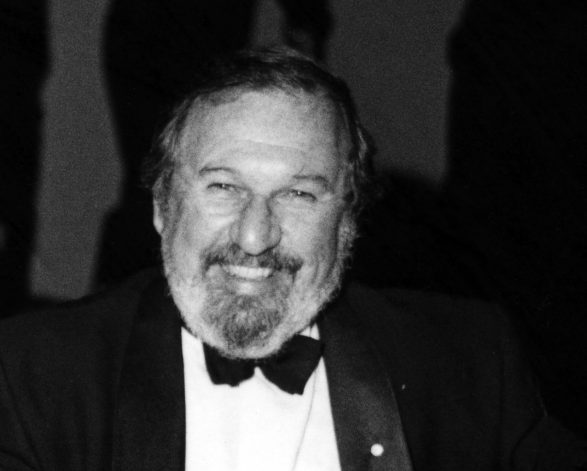Distinguished architect and long-time supporter of the National Trust, David Jackson AO passed away in January this year.
Intuitively understanding that environmental sustainability works hand-in-hand with heritage conservation, David believed in conserving historic buildings. For 30 years, he served the National Trust, he was a member of the National Trust’s Architectural Advisory Committee and was awarded the National Trust Volunteer Service Silver Medal in 1997.
In David’s early years, a scholarship took him from a small village in the Cotswolds to the Architectural Association School of Architecture in London. Here, Peter Smithson, arguably the founder of New Brutalism, was David’s master and ultimately a major influence on his work. In 1956, David won a King George VI Memorial Fellowship at Yale for postgraduate study in town planning. Professor Christopher Tunnard, an inspirational city-planner of the time, took David under his wing and gave him a lifelong sensitivity to architecture in an urban context.
After Yale, David worked and travelled in the USA. This early experience in the northern hemisphere took place during a time of incredible change – he met inspirational leaders of the post-war modernist architecture movement. The modern architectural ideals of the post-World War II period, together with a youthful determination, travelled with David throughout his career.
Taking up a position with a British architectural firm, he went to Jamaica, where he worked on Kingston’s international airport, before finding his way to Australia in 1958. In Sydney, David joined the established firm McConnel Smith and Johnson Architects (MSJ), where he became a partner. His first project, as the sole architect – the RSL Club in Wellington, NSW – was opened in 1960 by the Governor of New South Wales, who described it as the “Opera House of the West.”
Environmentally sensitive design was integral to David’s agenda, and he lobbied other organizations and presented on the topic at multiple international conferences. In the early 1980s, David became involved with the National Trust and was instrumental in the founding of the National Trust’s Architectural Advisory Committee in New South Wales. The Committee was unique in that it had experts in heritage conservation and (in the language of the day) the ‘recycling of historic buildings’ providing free consultation to Architects, Town Planners and Developers. David’s service and his great love for heritage conservation aligned him to the National Trust’s core values. His desire to work with and build partnerships across industry and sectors. David also developed many significant submissions for the Trust (such as Arakoon State Recreation Area),
During David’s time at MSJ, a vibrant young architect caught his attention, his future life partner, Barbara. The pair remained dedicated to the architectural profession while raising a family of four children, and enjoying a full life of adventure, love and laughter together.
David branched out from MSJ with three colleagues and founded Jackson Teece Chesterman Willis (JTCW), now Jackson Teece, and in its fiftieth year. The practice took a leading role in many conservation projects, such as the Sydney GPO, and won multiple awards for projects such as the University of Sydney’s Faculty of Education, the Central Synagogue at Bondi Junction, and, for Pacific Power, the University of Newcastle’s Advanced Technology Centre, which was the inaugural winner of the Royal Australian Institute of Architects (RAIA) New South Wales Chapter Environment Award in 1994.
David’s dedication to the profession and promoting quality design nationally and internationally, was duly rewarded. In 1991, David was appointed an Officer of the Order of Australia (AO). He was president of the Commonwealth Association of Architects from 1991 to 1994, and was made an honorary fellow of the American Institute of Architects in 1990 and of the Indian Institute of Architects in 1992.
David remained passionate about architecture and conservation though his retirement and his legacy will be continued by his close community.

 Twitter
Twitter Facebook
Facebook Linkedin
Linkedin Email
Email